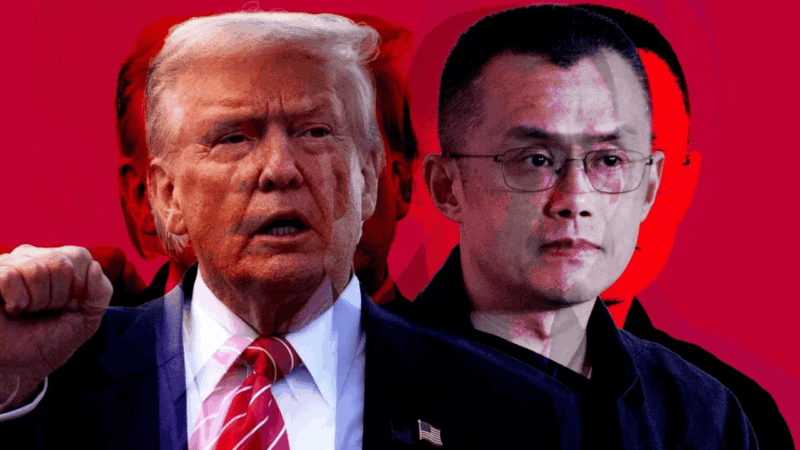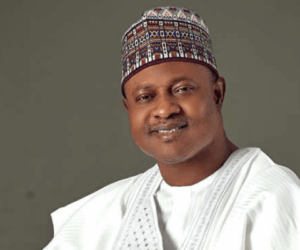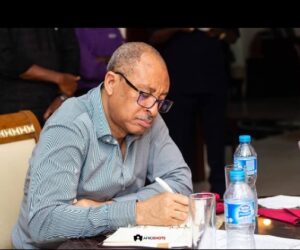The White House confirmed on Thursday that President Donald Trump has granted a full pardon to Changpeng Zhao, the convicted founder of Binance. The announcement sent shockwaves through both political and crypto circles. Within an hour of the news breaking, Binance’s native token BNB surged by over 5 per cent.
In a statement quoted by Reuters, White House Press Secretary Karoline Leavitt said that Trump had “exercised his constitutional authority by issuing a pardon for Mr Zhao, who was prosecuted by the Biden administration in their war on cryptocurrency.”
Zhao, a towering figure in the crypto industry, had stepped down as CEO of Binance as part of a plea agreement. As part of that deal, Binance paid a record $4.3 billion settlement, and Zhao himself served four months in prison, following a conviction for failing to maintain adequate anti-money laundering controls.
The pardon wipes clean Zhao’s federal conviction and could clear a path for him to re-engage with the crypto world more directly, though whether he returns to a leadership role at Binance remains uncertain.
Meanwhile, the market reaction was swift. The price of BNB jumped more than 5 per cent within an hour of the confirmation. Some reports peg the rise at 5.5 per cent, with BNB climbing toward the $1,145 level.

BNB had already been in a strong rally mode ahead of the announcement. Speculation had been mounting that Zhao might be pardoned, and the token had recently hit record highs amid that excitement.
The jump underscores how entwined Zhao’s legal status is with market sentiment. A clean slate for him is widely viewed as positive for investor confidence in the Binance ecosystem and the BNB Chain.
Binance’s Changpeng Zhao pardon: political, legal and market stakes
Zhao’s pardon is consistent with a pattern of clemency by Trump toward high-profile executives. Earlier this year, Trump pardoned the founders of BitMEX, a crypto trading platform; Silk Road founder Ross Ulbricht, who was sentenced to life in prison for running an underground online marketplace where drug dealers and others conducted more than $200 million in illicit trade using bitcoin; the founder of Nikola in a fraud-related matter; and commuted a sentence for an executive of media firm Ozy Media.
The decision also comes amid scrutiny of overlapping financial interests. In May 2025, Congress requested information on a potential connection between Zhao’s pardon application and financial dealings involving Binance, the Trump family–associated crypto venture World Liberty Financial, and a $2 billion investment deal.
White House allies have framed the pardon as a corrective to what they describe as overzealous anti-crypto prosecutions under the Biden administration. Leavitt’s statement explicitly attacked prior enforcement as an attack on innovation.


Still, the pardon raises legal and ethical questions. Critics argue that the timing and context, including the ties between Binance, Zhao, and Trump-linked ventures, create the appearance of favouritism and political quid pro quo.
From a regulatory standpoint, the pardon does not necessarily undo all constraints on Binance or BNB. U.S. regulatory bodies may still assert oversight or pursue civil actions under securities or financial statutes.
For Binance itself, the pardon could unlock opportunities in U.S. operations that were previously limited by the cloud of its founder’s criminal record. Some analysts believe a cleared Zhao may embolden institutional and retail interest in Binance and the BNB ecosystem.
Yet, the challenges loom large. Binance must still contend with the legacy of its legal settlement, ongoing compliance obligations, scrutiny from international regulators, and a sceptical public.
Zhao’s personal role is also in flux. While the pardon clears his conviction, whether he returns to an executive role, reclaims influence, or acts in an advisory capacity is yet to be known. Some insiders caution that stepping back into a public leadership role could reignite political or regulatory backlash.








